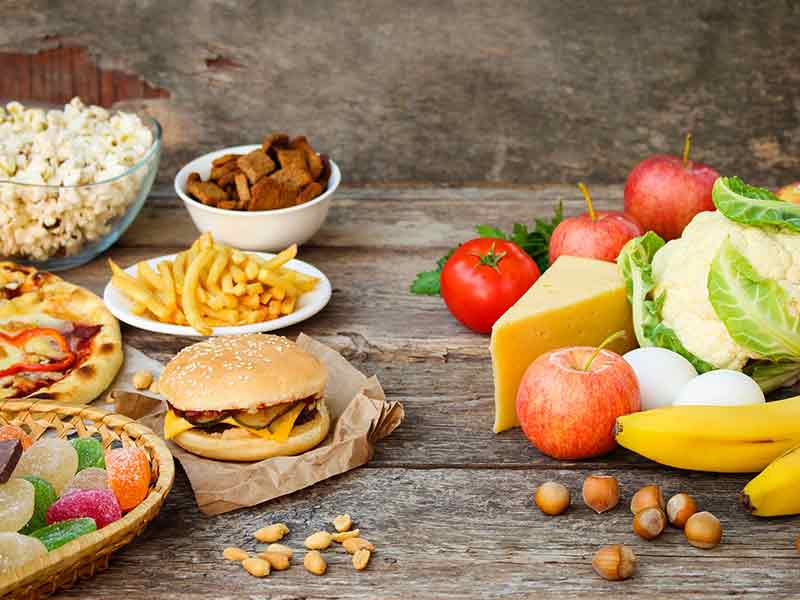When a person discovers that he was mistaken in something, he uses the term “MIF” according to the common sense tradition, although the myth is not a lie, not superstition, but something else. After all, a myth is a reality reflected by consciousness in figurative and symbolic form. And we are inside it.
Well, what can we take from these ordinary people? The myth also serves them. However, we should remind about the real myth. However, in this case I have mentioned it only because the delusions collected about food are called a myth below. Well, fuck them. The main thing is that the misconceptions have been disproved.
We offer you a selection of common modern myths and misconceptions about food, which are long overdue to debunk:
Eggs are unhealthy food
Almost all experts say that eggs are not a particularly useful product, as the yolks contain too much cholesterol, so their frequent use increases the risk of heart disease.
According to recent studies, high cholesterol levels in your diet do not increase your blood cholesterol levels. In fact, eggs are one of the most useful products for humans: they contain “good” cholesterol, all kinds of essential nutrients, as well as unique antioxidants necessary for eye health.
Fatty food is bad for you
A few decades ago, there was an opinion in society that a large number of cardiovascular diseases are associated with the popularity of food saturated with animal fats.
New tests prove that this is not the case. In 2010, a scientific journal published the results of 21 epidemiological studies on a total of 347,747 food products. The result is that there is absolutely no connection between heart disease and fatty food. The view that there is such a connection is only a theory that has become commonplace for unknown reasons.
You need to eat cereal.
The idea that people have to include various cereals in their diet has never really made sense. The agricultural revolution in our history is relatively recent, and the genes have not changed so much that we need grains.
Cereals do not contain much nutrients compared to vegetables. They are also rich in phytic acid, which binds important minerals in the intestines and prevents their absorption.
For example, wheat contains a lot of protein called gluten, which can cause damage to the intestines, pain, bloating and fatigue. Gluten is also associated with schizophrenia and cerebellar ataxia.

There’s a lot of protein that’s bad for bones and kidneys.
High-protein diets are said to be harmful to bones and kidneys. Yes, in the short term, the excess protein increases the release of calcium from the bones, but in the long term it has the opposite effect – it makes the bones healthier and reduces the risk of fracture. In addition, studies have found no link between high protein intake and kidney disease.
In fact, the main risk factors for renal failure are diabetes mellitus and high blood pressure. Protein consumption has a beneficial effect on both diseases. And protein is certainly useful as a prevention of osteoporosis and renal failure.
Low-fat food is useful
If you take absolutely all the fats out of the food, it’ll start to taste like cardboard. Food manufacturers understand this perfectly and therefore add other substances to the food to compensate for the lack of fats.
These are usually sweeteners – sugar, high fructose syrup or artificial sweeteners. We’ll talk about sugar later, but I’d like to point out that artificial sweeteners, although low in calories, are hardly more useful than regular sugar.
Many studies show a connection between skimmed foods and various diseases – obesity, metabolic syndrome, diabetes, heart disease, preterm birth, miscarriages and chronic depression. These products replace healthy, unjustified natural fats with harmful substances.
It’s better to eat many times during the day, but in small portions
The idea that it is better to do a few small meals a day to maintain high metabolism is an established but meaningless myth. Yes, food does increase your metabolism a little while you’re digesting it, but it’s about the total amount of food you can use, not the amount of snacks.
Research confirms this. One group of subjects ate many times a day, and the second group ate the same amount of food a day, but for two or three approaches. It turned out that there was no difference.
It is not natural for the human body to be constantly fed. In the wild, people have had to eat densely not every day. So long breaks between meals cannot hurt you in any way.
Carbohydrates should be the main source of calories
It is believed that people should eat as little fatty food as possible, but carbohydrates in our diet should be 50-60% of the total number of calories. If it were true, a diet with a high content of cereals and sugar and a minimum amount of meat and eggs would be useful.
Numerous researches convincingly prove that for those who are inclined to completeness, has a metabolic syndrome or diabetes, such diet is dangerous, and for the rest – harmful, as direct road leads to obesity.




